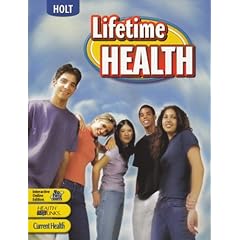I went to high school in diverse, liberal White Plains, New York. The health classes I had were more honest and less shameful than most of my friends went through. I remember my teacher putting a condom on my friend's head in 7th grade, to show how strong and durable they were (and to prove that nobody is "too big" for a normal sized condom, but that's another story). I learned all about birth control and contraception very early on, and although it wasn't always gay-friendly or perfect in all respects, I was happy with my sexual education, especially after it was supplemented by my openminded mother.

That is, until high school. Which is strange. We still had the openminded curriculum, the table full of different birth control methods (so many choices!), but we also had a textbook. A textbook from Texas. ok. And in the index, the word "condom" was not found.
I wrote an editorial for the my high school newspaper, The Orange, about how misleading this was. And how even though my teacher supplemented the curriculum with that table covered in birth control choices, it wasn't right to have that abstinence-only textbook. Not in my liberal school district. My editorial was met with scorn from the health department - my teacher cornered me in the hallway and reminded me about how well they taught birth control. And I reminded her that I really appreciated that - and that if we support teaching that, we shouldn't have been using a textbook that didn't uphold those beliefs. I'm still kind of impressed that my highschool-self had the foresight to feel so strongly about that. I wonder if they still use those textbooks.
Ok, what am I trying to say? I remember from that textbook, the chapter on STDs said, under the heading "how to avoid contracting an STD" something along the lines of "have a high self esteem! So you can't be coerced into having sex." There wasn't anything overt about shame, or about how sex is bad and dirty (not that I remember, anyway) - but even so, I couldn't take it.
Abstinence-only sex education is unacceptable. Not only does it not work (which ought to be enough, right?) but it instills shame and fear in everyone. And it's dangerous! Even if everyone listened and decided to be abstinent until marriage (63% of high school seniors have had sex), they wouldn't know how to use a condom when they got around to it. STDs and unplanned pregnancies don't just go away once you get married. IF you get married.
That's why we need REAL sex ed!
This post over at RHrealitycheck details some of the more shameful tactics abstinence-only people are using, and explains how the industry is changing. As more people reject abstinence-only sex ed, the less government money goes toward it, the people proliferating it are going to have to change their tactics - and we need to watch out for that underlying shame!









